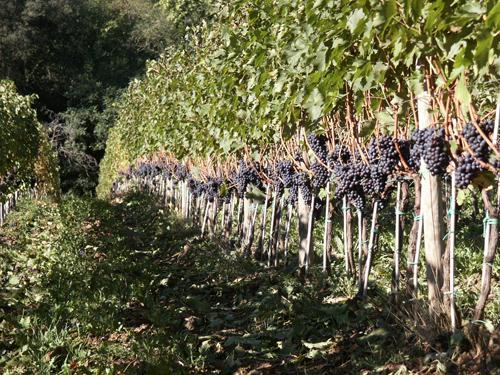Luke 10:2
Luke 10:2 (see also Matthew 9:38)
And He was saying to them, “The harvest is plentiful, but the laborers are few; therefore beseech the Lord of the harvest to send out laborers into His harvest.”
If interpreted the Calvinist way, we’d have to conclude that exactly enough laborers are present to get the job done. However, Jesus seems to imply that a lack of laborers is leading to a spoilage of souls (i.e. people perishing who otherwise could be saved). Calvinists would say that such a view is naïve, and that God gets everyone saved “that He wants to,” but if that is so, then what was the point of Jesus’ concern? Was He concerned about something that He was only pretending to be concerned about? How else would a Calvinist understand it?
Calvinists often raise the subject of people from foreign countries who may never have heard the Gospel, as a way to suggest that God placed them there because He doesn’t really love them (i.e. an alleged non-election). However, the truth is that God doesn’t accept blame for people being unreached. God points the finger back at the shocked Calvinist. (Compare with Ezekiel 33:7-11) Not everyone can be a missionary, but what about helping to support a missionary, or a missions based organization?
Question: Does this mean that there are many of the Calvinistcally Elect who are ending up lost, because there are not enough workers to reach them? If not, then what would this passage mean to a Calvinist?
Answer: Calvinism seems to rob this passage of its meaning. I infer the meaning to be that there are a great deal of people who are reachable, except that there are not enough people working to reach them, and God is lamenting at the fact that there are a great many who could be saved, but who aren’t, and so He is convicting people into action, so as to avoid loss, where there would otherwise be gain.
Question: What does it mean that the “harvest
is plentiful?”
Answer: It means that there is a ripe harvest of
lost souls, who could and would be won to the
Lord, if only there were enough harvesters
available to preach the Gospel to them.
Question: What does it mean that the “laborers
are few”?
Answer: The concern is spoilage, and God cites
a lack of interest among believers to deliver the
Gospel message, rather than a lack of interest of
God in giving saving grace. According to Jesus,
pray and ask God to send out more messengers
of the Gospel, so that more people could become
saved. One preacher once said: “You have three
options. 1) You can become a missionary. 2)
You can support a missionary. Or, 3) you can
repent.” Ultimately, what this verse means to me,
is that if there were more people preaching the
Gospel, and more people partnering with
Missions across the globe, then more people
would be getting saved.
John Calvin: “By the metaphor, He means that many of the populace were ready to receive the Gospel.” (Calvin’s New Testament Commentaries: Matthew, Mark and Luke, Vol. I, p.278, emphasis mine)
Question: Which “populace”? Calvinism's elect populace or the populace in general, and are they “ready to receive the Gospel” because they have an Irresistible Grace?
Answer: This passage creates a pickle for Calvinists, whether they care to admit it or not.
John Calvin: “The burden of such prayer was never greater than in the appalling devastation of the Church, as we see it everywhere today.” (Calvin’s New Testament Commentaries: Matthew, Mark and Luke, Vol. I, p.278)
John Calvin: “For, to stir His disciples up to diligent efforts, Christ declares that the harvest is plenteous, and therefore by implication that their labour will not be in vain but that they will find abundant opportunities for effectual work to undertake.” (Calvin’s New Testament Commentaries, A Harmony of the Gospels: Matthew, Mark and Luke, Vol. II, p.14, emphasis mine)
Question: “Abundant opportunities” because of Irresistible Grace?
Calvinist, James White: “God has ordained the means as well as the ends: the prayer of Luke 10:2 is that the Lord would send out workers into the harvest.” (The Potter’s Freedom, pp.264-265, emphasis mine)
In other words, God has decreed the prayers that line up with a chain of events which sees a predetermined number of “elect” people becoming saved. This matches the Calvinist mantra that prayer doesn’t change anything, but is merely a part of a predetermined chain of events.
James White: “Obviously, this has nothing to do with with Jesus praying for unbelievers, since, of course, that would require the assumption that none of those gathered around were of the elect.” (The Potter’s Freedom, p.265, emphasis mine)
So this passage is, then, referring to the Calvinistically Elect. Ok, so then what is the problem with the laborers? The Calvinistically Elect are going to be regenerated, regardless, by an Irresistible Grace, simply because they are of the Calvinistically Elect, and precisely at the time of God’s sovereign choosing, and so again, if Calvinism is correct, why should Jesus present this as a dilemma?
Question: So should we assume that this passage means that the Harvest is ripe with “the elect,” but there just aren’t enough people to preach the Gospel so that “the elect” can irresistibly receive it?
Answer: The fact is, that in the parallel passage of Matthew 9:38, v.36 states: “Seeing the people, He felt compassion for them, because they were distressed and dispirited like sheep without a shepherd.” So it’s not an “elect” people, but rather, all Israel indiscriminately.
Question: How do we know that this verse doesn’t simply mean the very thing that Calvinists assume, insomuch that the Lord is simply beseeching the secret group to go out and preach the Gospel to the rest of the secret elect? Isn’t it the Arminians who are assuming that souls are being spoiled for a lack of preachers?
Answer: Arminians aren’t assuming anything beyond the analogy itself. What happens when the grapes are left unpicked? They spoil. What happens when the Gospel isn’t preached. People perish.

